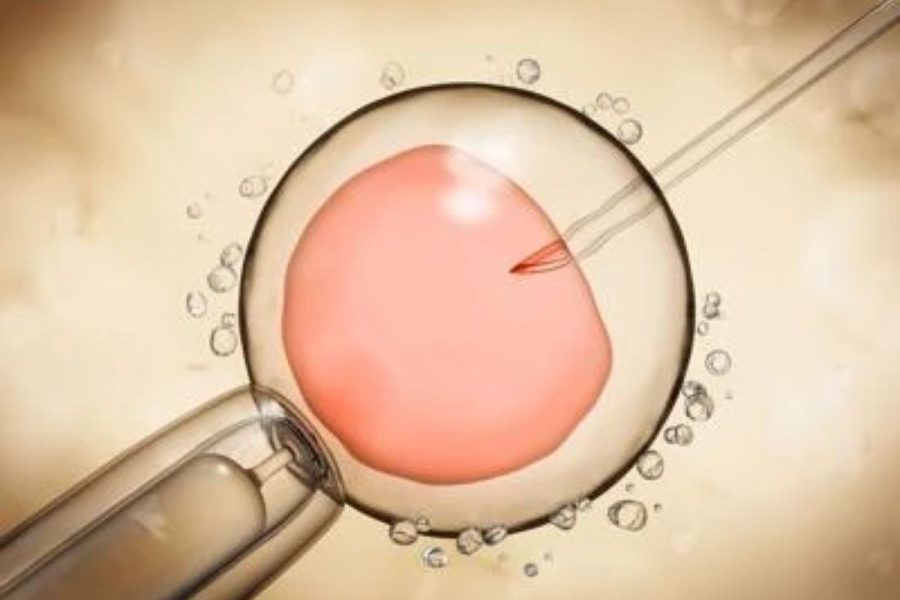Alabama Judges Redefine Law: The recent decision by Alabama judges to legally classify in-vitro embryos as ‘children’ has sparked significant debate and scrutiny. This groundbreaking ruling raises complex questions regarding the intersection of reproductive rights, legal definitions, and ethical considerations.
The implications of this judicial determination extend beyond the courtroom, affecting societal norms, medical practices, and potentially altering the landscape of future legal battles. The implications of this decision are far-reaching and warrant a closer examination to understand its full scope and potential consequences.
Key Takeaways
- Alabama Supreme Court’s recognition of embryos as children challenges reproductive rights.
- Legal ramifications extend to custody disputes and assisted reproductive technologies regulation.
- Lawsuit implications raise ethical and legal questions on personhood and medical practices.
- Broader impact prompts reevaluation of IVF accessibility, ethical considerations, and potential legal battles.
Alabama Supreme Court Recognizes Fertilized Embryos as Children: Legal and Reproductive Ramifications
In a groundbreaking decision, the Alabama Supreme Court’s recognition of fertilized but un-implanted embryos as children has sparked intense discussions surrounding the legal and reproductive implications of this redefinition within the realm of assisted reproductive technologies. This ruling challenges traditional legal definitions and opens up a plethora of complex questions about the rights and status of embryos in the context of in-vitro fertilization (IVF) treatments.
The classification of embryos as children raises concerns about the potential impact on reproductive rights, custody disputes, and the legal responsibilities that come with parenthood. It also brings into focus the ethical considerations surrounding the beginning of life and the rights of individuals to make decisions about their reproductive choices.
Moreover, this decision could have far-reaching consequences on how assisted reproductive technologies are regulated and practiced not only in Alabama but potentially in other states as well. The debate surrounding the legal and reproductive ramifications of this ruling is sure to continue as society grapples with the implications of defining embryos as children under the law.
Legal Impact of the Ruling
The Alabama Supreme Court’s landmark ruling on the recognition of fertilized embryos as children has significant legal implications that could reshape the landscape of reproductive rights and responsibilities within the state. By extending the state’s Wrongful Death of a Minor Act to cover all unborn children, the court has effectively granted legal personhood to embryos, a decision that could potentially impact various aspects of the law.
This ruling raises complex questions surrounding reproductive rights, such as the rights of individuals to make decisions about their embryos and the potential criminalization of certain actions related to embryos. Additionally, this decision may have far-reaching consequences for fertility clinics, medical professionals, and individuals undergoing assisted reproductive procedures, as it introduces a new legal framework that recognizes embryos as having legal rights and protections.
The legal community will likely closely monitor how this ruling influences future cases and shapes the broader legal landscape surrounding reproductive issues in Alabama.

READ MORE: Alabama Supreme Court Declares In-Vitro Embryos as Children
Lawsuit Background and Allegations
The focal point of the lawsuit stemming from the incident in October 2021 involves allegations of a patient’s involvement in the destruction of embryos at Mobile Infirmary. This has prompted legal contentions regarding the recognition of these embryos as individuals under the law and the pursuit of punitive damages against the implicated medical facilities.
The plaintiffs contend that the embryos in question should be afforded the legal status of individuals, thus holding the medical facilities accountable for the destruction that occurred. This case raises complex ethical and legal questions surrounding the definition of personhood and the rights and responsibilities associated with embryos created through in-vitro fertilization.
The allegations suggest a breach of trust and duty of care towards these embryos, leading to a contentious legal battle that could have far-reaching implications for reproductive rights and medical practices. The lawsuit underscores the need for clarity in the legal framework governing assisted reproductive technologies to ensure the protection of all parties involved in such sensitive procedures.
Broader Implications for Reproductive Rights
Amidst the evolving landscape of reproductive rights in Alabama, the recent judicial redefinition of in-vitro embryos as ‘children’ introduces a pivotal shift with profound implications for the legal and ethical frameworks governing assisted reproductive technologies. This decision not only challenges existing norms but also sets the stage for significant changes in how reproduction is regulated and understood in the state.
The broader implications for reproductive rights are vast and multifaceted, touching upon issues of autonomy, personhood, and medical advancements. Here are four key points to consider:
- Rights of Embryos: The reclassification of embryos as ‘children’ raises questions about their legal rights and protections.
- Impact on IVF: The decision could impact the accessibility and regulations surrounding in-vitro fertilization procedures.
- Ethical Considerations: The shift prompts a reevaluation of the ethical considerations surrounding the use of assisted reproductive technologies.
- Future Legal Battles: This redefinition sets the stage for potential future legal battles and challenges in the realm of reproductive rights.
State’s Social Landscape and Political Direction
Setting the stage for a deeper exploration into the complex interplay between Alabama’s social landscape and its current political direction, the recent judicial redefinition of in-vitro embryos as ‘children’ signals a significant shift with potentially far-reaching implications. Alabama’s decision aligns with conservative policies, sparking debates on issues like child poverty, healthcare access, and reproductive rights. The state’s focus on defining unborn children raises concerns about priorities and impacts on women’s choices. This move sets the scene for legal battles, societal discussions, and possible legislative changes, shaping the discourse on reproductive rights in Alabama.
| Social Landscape | Political Direction |
|---|---|
| Conservative policies | Legal definition of unborn children |
| Child poverty | Potential impacts on women’s choices |
| Healthcare access | Ongoing legal battles |
| Reproductive rights debates | Evolving legislative actions |
| Safety in childcare facilities | Shifting priorities in Alabama |
Conclusion Of Alabama Judges Redefine Law
In light of the Alabama Supreme Court’s decision to recognize fertilized embryos as children, the legal and reproductive landscape in the state faces significant changes.
The ruling has far-reaching implications for reproductive rights and could potentially impact future legislation and social norms.
It remains to be seen how this decision will shape the state’s social landscape and political direction moving forward.
Our Reader’s Queries
Is IVF covered in Alabama?
Verify with your insurance provider to ascertain coverage for these procedures. Typically, IUI and IVF aren’t included in the majority of Alabama-based insurance plans, except for PEEHIP/EDU policies at BCBS, which usually cover IUIs. If you have out-of-state insurance, IUIs and IVF may be covered by your policy.
How much is IVF in Alabama?
Determining whether to proceed with IVF involves considering the treatment cost. On average, IVF expenses range from $10,000 to $15,000. While many Alabama insurance carriers don’t cover the procedure, it’s advisable to directly inquire with your insurance company about potential fertility benefits.
How many embryos are in vitro?
Limit euploid embryo transfers to one, irrespective of patient age. Patients under 35 should strongly consider a single-embryo transfer, regardless of the stage. Those aged 35-37 should strongly consider the same approach.
What happens with IVF embryos?
Traditional IVF often yields surplus embryos beyond a single uterine transfer cycle. Quality non-transferred embryos can be frozen for future use. Freezing also occurs after preimplantation genetic screening.

